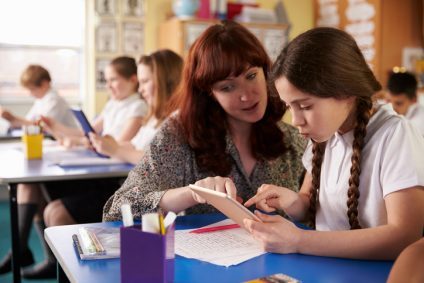
Empowering young people to navigate the world of social media provides them with a critical life skill for both the digital world and their future workplace. Pupils and teachers should, therefore, have access to the best possible facilities and resources which are conducive to facilitating their wellbeing and learning. Julie Hunter, deputy headteacher at Aureus School in Oxfordshire, says that, by working in partnership with the SLT and governors, SBMs can help realise these goals through, for example, equipping teachers with the methods, skills and resources to achieve this
Young people today are growing up as natives of the digital world rather than mere visitors to it. Research shows age limits designed to protect young people, and stop them from accessing social media platforms when they are too young, are not working.
According to a survey conducted by ComRes more than three quarters of 10-to-12-year-olds ignore social media age guidelines, with over half of all children having accessed a social media account by the age of just 10.
Accessing this world often happens without much – or any – parental supervision. Long before schools have started teaching about online safety – or the dangers associated with meeting strangers online – young people are often learning to navigate a complex virtual world with limited knowledge or awareness of the dangers.
The impact of social media on body image and self-esteem
In the online world, likes and comments act as a kind of currency – a reward for when young people upload images of themselves or their friends. These digital responses can cement young people’s ideas about what type of images their followers want to see. By checking their smart ‘phones so frequently, some young people act as if they’re addicted to – and dependent upon – social media.
We also know that many young people will favour social media apps that are mainly image-based. These sites enable them to upload filtered images, emulating the feeds of their favourite celebrities. Filters enable students to portray a perfectly polished version of themselves and their lives – a false reality. This can have a huge impact on an individual’s self-esteem and wellbeing.
We need to acknowledge that young people are, subconsciously, adapting their body images according to what they see on social media. This has a clear psychological effect – bombarded with edited perfection in the digital world, they strive for unrealistic perfection in the real world, too. As adults, how do we reassure students that celebrity lifestyles and advertising do not reflect real life?
Lessons on body image: an important starting point
Running personal, social, health and economic (PSHE) lessons focused on body image in the real and digital worlds will be an important starting point. Through such sessions, we can model ‘real’ profiles on social media and discuss ‘fake’ imagery in the same way we might discuss reliable and unreliable news sources.
The most effective approach, in my experience, is to compare the stylised images seen online and in magazines alongside real imagery, including photos taken by models themselves. When young people see two images of a model side-by-side, they quickly question why these misleading images are being presented to them.
It’s important for teachers to provide a safe and non-judgemental environment through which to support students to learn about, and discuss, body image in a digital world. For teachers, it is key to model positive behaviour so that students leave these sessions with a can-do toolkit, rather than a don’t-do list.
It is also important to empower young people with the knowledge and skills to navigate the digital world safely and to allow them to take advantage of the benefits the online world has to offer.


Be the first to comment